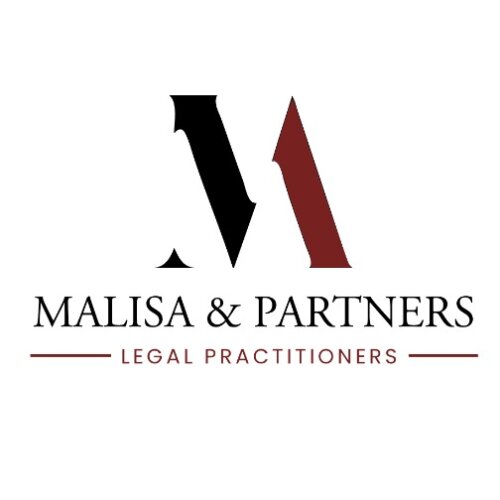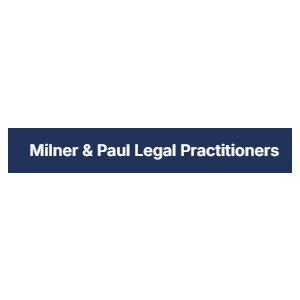Best Housing, Construction & Development Lawyers in Zambia
Share your needs with us, get contacted by law firms.
Free. Takes 2 min.
Free Guide to Hiring a Real Estate Lawyer
Or refine your search by selecting a city:
List of the best lawyers in Zambia
About Housing, Construction & Development Law in Zambia
Zambia's housing, construction, and development sector encompasses a complex array of laws and regulations aimed at ensuring orderly growth and sustainability. The sector plays a critical role in providing affordable housing and supporting infrastructure development. Legal frameworks govern aspects such as land acquisition, zoning, building codes, safety standards, and property rights. These regulations are designed to protect both developers and property owners, ensuring transparency and fairness in the housing market.
Why You May Need a Lawyer
There are numerous scenarios where legal assistance may be required in the field of housing, construction, and development in Zambia. Common situations include:
- Disputes over land ownership or property boundaries.
- Issues arising from construction contracts or agreements.
- Compliance with zoning laws and building regulations.
- Resolving tenancy disputes or rental agreements.
- Negotiating property sales, purchases, or leases.
- Disputes related to construction defects or delays.
- Navigating permits and licensing processes.
- Environmental impact considerations and compliance.
- Access to affordable housing schemes and financing.
In these situations, a lawyer specializing in housing, construction, and development can provide valuable legal advice, representation, and ensure compliance with the applicable laws.
Local Laws Overview
Zambia's housing, construction, and development laws cover several key areas:
- Land Tenure: Land in Zambia is categorized as state land, customary land, and private land. Each category has specific legal frameworks governing ownership and usage.
- Zoning and Planning: Local councils and planning authorities govern land use and zoning to ensure appropriate development. Zoning laws dictate what types of buildings and activities are permitted in specific areas.
- Building Codes: Building regulations specify construction standards including safety, materials, and design to ensure structures are safe and sustainable.
- Environmental Laws: Developers must adhere to environmental regulations aimed at minimizing the impact of construction activities on the environment.
- Contract Law: Legal frameworks govern agreements and contracts related to construction projects, including obligations, rights, and remedies of the parties involved.
- Property Law: Laws dealing with the sale, purchase, leasing, and rental of property, including tenant and landlord rights.
Understanding these key aspects of local laws is crucial for anyone involved in housing, construction, and development in Zambia.
Frequently Asked Questions
What are the main types of land tenure in Zambia?
In Zambia, land is primarily categorized into state land, customary land, and private land. Each has different rules and governance structures.
Who regulates building codes and safety standards in Zambia?
Local authorities are responsible for enforcing building codes and safety standards. Compliance with these codes is mandatory for all construction projects.
Can foreigners own land in Zambia?
Yes, foreigners can own land in Zambia, although there are some restrictions and requirements, particularly for land classified as state land.
What should I do if I encounter a zoning dispute?
It is advisable to consult with a lawyer who can help navigate the zoning laws and work with local authorities to resolve the dispute.
What are some common causes of construction disputes?
Common causes include disagreements over contract terms, delays in project completion, poor workmanship, and payment issues.
Do I need a lawyer to purchase property in Zambia?
While not mandatory, having a lawyer can ensure that the purchase process is properly conducted, contracts are clear, and your rights are protected.
How can tenancy disputes be resolved in Zambia?
Tenancy disputes are typically resolved through negotiation, mediation, or by taking the matter to the Rent Tribunal or local courts.
What is the process for acquiring building permits in Zambia?
The process involves submitting a detailed proposal to the local council, followed by inspections and approvals from relevant agencies before construction can commence.
Are there financing options for affordable housing in Zambia?
Yes, there are several financial institutions and government schemes that offer loans and assistance for affordable housing in Zambia.
How do environmental laws affect construction projects?
Environmental laws require developers to assess and mitigate the environmental impact of their activities, often necessitating an Environmental Impact Assessment (EIA) before project approval.
Additional Resources
For more information and assistance, the following resources may be helpful:
- The Ministry of Local Government and Rural Development: Responsible for housing policy and urban planning.
- Zambia Institute of Architects: Offers guidance on building design and architecture.
- Patents and Companies Registration Agency (PACRA): Provides services related to business registration and legal compliance.
- Zambia Law Development Commission: Offers resources and research on Zambian laws.
- Zambia Environmental Management Agency (ZEMA): Governs environmental compliance and approvals.
Next Steps
If you need legal assistance in housing, construction, and development, consider the following steps:
- Identify the specific legal issue you are facing, such as land disputes, contract disagreements, or compliance questions.
- Consult with a legal professional specializing in housing, construction, and development to gain clarity and direction.
- Gather any relevant documents or evidence that may support your case, such as contracts, permits, or correspondence.
- Consider mediation or arbitration as alternative dispute resolution methods if applicable.
- Stay informed about current laws and regulations by participating in workshops or legal seminars.
Engaging with a knowledgeable lawyer early in the process can help prevent further complications and ensure your interests are adequately protected.
Lawzana helps you find the best lawyers and law firms in Zambia through a curated and pre-screened list of qualified legal professionals. Our platform offers rankings and detailed profiles of attorneys and law firms, allowing you to compare based on practice areas, including Housing, Construction & Development, experience, and client feedback.
Each profile includes a description of the firm's areas of practice, client reviews, team members and partners, year of establishment, spoken languages, office locations, contact information, social media presence, and any published articles or resources. Most firms on our platform speak English and are experienced in both local and international legal matters.
Get a quote from top-rated law firms in Zambia — quickly, securely, and without unnecessary hassle.
Disclaimer:
The information provided on this page is for general informational purposes only and does not constitute legal advice. While we strive to ensure the accuracy and relevance of the content, legal information may change over time, and interpretations of the law can vary. You should always consult with a qualified legal professional for advice specific to your situation.
We disclaim all liability for actions taken or not taken based on the content of this page. If you believe any information is incorrect or outdated, please contact us, and we will review and update it where appropriate.
Browse housing, construction & development law firms by city in Zambia
Refine your search by selecting a city.
















